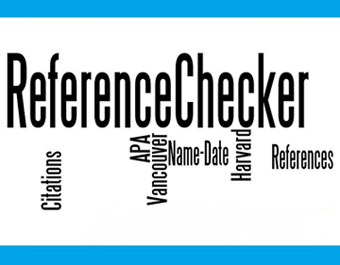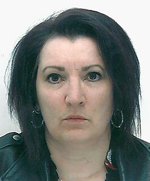Freelancer of the Month August 2013 – Laura Proudman
0Hi, Laura! Please can you tell us a bit about the nature of your freelance business?
Comma Chameleon Proofreading arose from a love of language crossed with the stubborn determination to weed out any and all imperfections – and, I suppose, a cheeky appreciation for Culture-Club-based puns!
I have a BA in English Literature, English Language and Drama and an MA in Literature, so my strengths lie predominantly within these fields, although I also have qualifications in Psychology and Philosophy of Religion, so am very comfortable with the themes broached and the terminology used in these areas.
I currently focus solely on proofreading, although I may expand into copywriting in future; I have experience of writing a monthly column, as well as maintaining my own Comma Chameleon blog.
Tell us about your journey to becoming a freelancer.
I must admit I did rather fall into the world of freelance proofreading. I used to proofread university assignments for friends and family (they paid me in cake/pizza – what can I say? Chameleons love their carbs!), but hadn’t known how to pursue it as a career.
I was working at an independent screen-printing shop in Birmingham (www.getagripstudio.co.uk) when a musician-cum-freelance-proofreader came to get some T-shirts printed for his concert tour; we got chatting, he offered to recommend me as a proofreader to an editorial company that uses freelancers, and the rest is history! I’ve been slowly but surely growing my business since then.
What do you enjoy most about running your own business?
I enjoy the flexibility of being able to set my own working hours around my other obligations, but mostly I really enjoy the warm fuzzy feeling I get when a client is grateful for my help. So many people lack confidence in their writing, but it is great to be able to help them, not only by correcting their mistakes but by offering constructive suggestions and making comments on their work. It is also quite rewarding, when clients return with a new document to be proofread, to see that they have taken my suggestions on board and improved their writing as a result.
What are the downsides to working for yourself, if any, and how do you overcome them?
The risk of procrastination. My pencil case is veritably full to bursting with the promise of fun ways to while away the whole day (who knew building a pen-lid tower could be so rewarding?) and my office space is unwisely full of distractions (note to self: remove ukulele from eye line to avoid temptation to bash out a few [ear-crushingly painful] chords in homage to early-90s grunge. This is bad on so many levels…).
I actually tend to overcome the procrastination issue by giving in to the urges, allowing myself to get distracted for a set time before returning to work, now purged of my inexplicable need to compose a pencil-shavings-based reproduction of the Mona Lisa and free to focus on the task at hand. A clear mind is essential for thorough, detailed proofreading.
How do you go about promoting your business/finding clients?
In addition to appearing on Find a Proofreader, I have a website (www.commachameleonproofreading.co.uk), a Tumblr account (comma-chameleon-proofreading.tumblr.com) and a Facebook page (www.facebook.com/Comma.Chameleon.Proofreading).
What is your most treasured work-related possession?
My mouse! I was without it for a day recently, and having to use the toggle thingamajig on my laptop was a real exercise in frustration. I guess I’m just too old-school for all this new (i.e. post-twentieth-century) technology. Google and the OED are both also infinitely useful.
What do you enjoy doing when you’re not working with words?
I’m currently learning to play the ukulele. It’s not quite as aurally traumatising as listening to a child demonstrating his new violin, but it’s close. I mostly stick to quieter pursuits involving cake and pottery (although, lately, my attempts on the pottery wheel have resulted in some rather shrill ululations of frustration – and a large pile of botched pots).
What’s your favourite book?
My favourite book is not a literary classic; it is called Each Peach Pear Plum and is a children’s book written by Janet and Allan Ahlberg. My great-grandad read it to me as a child, and I recently passed on a copy (not my original copy, mind – that’s far too precious!) to my niece.
As far as books aimed at the more discerning reader are concerned, while I enjoy the novels of Charlotte Bronte, Bram Stoker and Mary Shelley, among other classic authors, I am very much a Stephen King fan. Currently on my bedside table are King’s new novel Joyland, George R. R. Martin’s Game of Thrones, and Khaled Hosseini’s A Thousand Splendid Suns.
Have you got any advice for aspiring freelancers?
Be patient. Building up your business will take time. Don’t underestimate the influence of word of mouth; if a client is happy with your work, their recommendation will go a long way towards their colleagues/friends/classmates choosing to use your services. Likewise, reviews and testimonials are massively influential.





